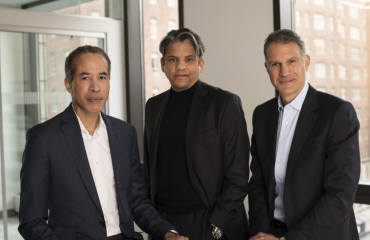Addressing Disparities in Healthcare and Clinical Research – Technology Networks
We’ve updated our Privacy Policy to make it clearer how we use your personal data.
We use cookies to provide you with a better experience. You can read our Cookie Policy here.
Complete the form below and we will email you a PDF version of “Addressing Disparities in Healthcare and Clinical Research”
The following article is an opinion piece written by Megan-Claire Chase. The views and opinions expressed in this article are those of the author and do not necessarily reflect the official position of Technology Networks.
My understanding of the need for diversity in clinical research comes from first-hand experience. Throughout my stage II invasive lobular breast cancer diagnosis, several health providers and other professionals within the cancer space made assumptions that I did not know anything about my diagnosis.
Acknowledging health disparities is a first step; taking action to address them is another. We need serious and systemic efforts – coordinated at the highest levels – to make structural change. We must include the voices of the individuals living the inequitable experiences. Our voices must not only be heard, but they must be leading the necessary and courageous conversations if we are to have any hope of improving health disparities.
The Diversity in Oncology initiative is co-creating a series of live, interactive sessions that bring together an audience of local and national organizations, patients and caregivers, healthcare providers, clinical trial teams, principal investigators, schools of public health and others who are committed to addressing health inequities. The goal of the initiative is to have conversations about new strategies for the delivery of equitable and high-quality cancer care for all. This also includes improving diversity in clinical trials, to make the enterprise more inclusive and responsive to populations that are currently underrepresented. We want to elevate the unheard and marginalized voices, the real and the raw ones. The ones that are the most important in the conversation about health equity, because they are the people living the experience every day.
I feel a major responsibility to create a space of trust so that each speaker feels safe in sharing their experiences without sugar-coating or feeling fear of not being believed. As a survivor, caregiver and Black woman, I have experienced structural racism my entire life. I’m deeply saddened and angered that my own health has often been in peril due to the color of my skin.
As a patient advocate, I actively bring awareness to these issues through writing, videos, social media content and by working side-by-side with various initiatives, like the Department of Defense Breast Cancer Research Program. Here, I review proposals to make sure Black people are being considered in the research plan before the studies move to human trials.
It is a privilege to lead discussions with fellow survivors, caregivers and advocates, hearing their stories about the structural racism they have experienced in healthcare and working together to highlight these inequities and identify a path forward.
I am hopeful that by harnessing the power of the voices who have lived injustice, we can collaborate in effectively pushing these topics from conversation to action, creating health equity for all.
About the author
Megan-Claire Chase is the Partnership Director for GRYT Health and lives in Atlanta, Georgia. In her spare time, she is a consumer reviewer for the Department of Defense Breast Cancer Research Program and a contributing writer for WebMD.



